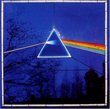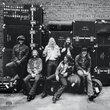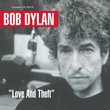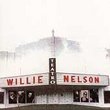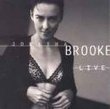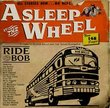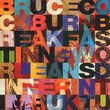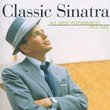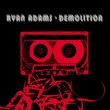| All Artists: Allman Brothers Title: Eat a Peach Members Wishing: 0 Total Copies: 0 Label: Island / Mercury Release Date: 7/13/2004 Album Type: Hybrid SACD - DSD Genres: Blues, Pop, Rock, Classic Rock, Metal Styles: Slide Guitar, Blues Rock, Jam Bands, Rock Jam Bands, Southern Rock, Album-Oriented Rock (AOR) Number of Discs: 1 SwapaCD Credits: 1 UPC: 602498622506 |
Search - Allman Brothers :: Eat a Peach
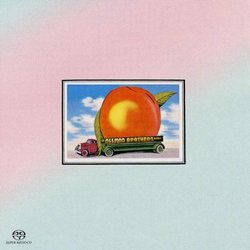 | Allman Brothers Eat a Peach Genres: Blues, Pop, Rock, Classic Rock, Metal
|
Larger Image |
CD DetailsSimilar CDs
Similarly Requested CDs
|
CD ReviewsStill Sweet J P Ryan | Waltham, Massachusetts United States | 07/19/2005 (4 out of 5 stars) "The Allman Brothers Band's "Eat A Peach" was a much anticipated album when it was released in February 1972, coming on the heels of their commercial breakthrough "At Fillmore East" (1971) and the November 1971 death of guitarist Duane Allman. In LP format, which came lavishly packaged and, at least in its first pressings, beautifully mastered, the four sides of this double album made a great deal of structural sense. Side one offered the 'new' ABB, in the form of three new gems recorded shortly after Duane's death. Gregg's originals, though not nececessarily written after his brother's tragic motorcycle accident, nevertheless convey the essence of the blues as deeply as Bobby Bland a decade earlier, and 'Ain't Wasting Time No More' and 'Melissa' both evoke a haunting, mournful tone thanks to some of Greg's most deeply felt vocals; Dicky Betts' nine-minute instrumental "Les Breres" smolders and catches fire much like the classic 'Elizabeth Reed' from "Idlewild South", demonstrating the new lineup retained its telepathy and vitality. Greg's classic songs and Betts' dazzling, extended intsrumental workout were proof positive that for the time at least, the ABB's inventiveness and cohesion remained intact. The second side offered the first 19 minutes of their unhurried, relaxed improvisation, inspired by Donovan's classic 'There Is A Mountain', here titled 'Mountain Jam' and taken from Fillmore shows recorded shortly after the previous year's live album. Side three blazed to yet another peak, with terrific and fascinating new material recorded before Duane's death, fleshed out by two splendid blues workouts also recorded at those Fillmore shows. Of the studio tracks, 'Stand Back' is a soulful rocker reminiscent of Delaney & Bonnie, and 'Blue Sky' is the first (and to these ears best) example of Betts' relaxed, country-inspired lyricism. The side closed with a lovely coda to the first era of the ABB, an acoustic duet between Duane and Dicky called 'Little Martha'. Finally, side four finishes off with the last 15 minutes of 'Mountain Jam'. Every CD edition of "Eat A Peach" eschews the original format, choosing instead to include all 34 minutes of 'Mountain Jam' in one uninterrupted helping. As for this new SACD, it is sonically by far the most impressive version of this album, which capture the Allmans at their peak, sonically. The sound is warm, detailed, and full. You feel the heat and sparks of a breathing entity when all band members shared a focus and goal and were listening and responding to one another. And Gregg's vocals have never sounded so full of soul. Of the three-dozen SACDs I own, only several Rolling Stones titles (issued by ABKCO in 2002, identifiable by the digipaks that house them) and Ronnie Lane/Pete Townshend's deeply moving "Rough Mix" (Hip-o) are nearly as revelatory. Nevertheless I also recommend seeking out a mint copy of the original double album, with the warm tubey sound and fabulous cover art, for though it may be a minority opinion, I find it structurally preferable: 'Mountain Jam' is not the sort of dynamic buildup 'Whipping Post' (from the Fillmore set) is; the pace is far more relaxed, and therefore having it broken up on sides two and four actually makes for a more interesting listening experience. The 34 minute CD version is simply a bit too meandering. Thus I do wish the lp format was used for at least one CD issue. Otherwise EAP is the ABB still at a peak, growing and evolving before the rot began to set in, first evident on the blockbuster 1973 followup "Brothers & Sisters" (a respectable work that nevertheless finds Greg fading into the background and the presence of Betts as the band's dominant songwriter - he was, or had become, simply too bland to carry the weight). B&S was a masterpiece, however, compared to the forced and unconvincing "Win, Lose Or Draw", after which the band broke up until their fine 1979 comeback "Enlightened Rogues". But on their fourth album, "Eat A Peach", Dicky Betts' songwriting voice - a relaxed, countryish contrast to Gregg's blues and soul intensity - is just hitting its stride, and the varied moods and textures, spread over a large canvas, make this one of the major albums of '72." All blues fans should own a copy, all slide guitar fans shou finulanu | Here, there, and everywhere | 01/23/2008 (5 out of 5 stars) "The Allman Brothers Band are one of the most consistent acts in history, but it must be said they were at their best when slide guitar legend Duane Allman played with them. That group put out a myriad of great albums, both in the studio (s/t; Idlewild South) and live (At Fillmore East/the Fillmore Concerts; Live at the Atlanta International Pop Festival). This was the last album before Duane's tragic death, and it's also the best they ever made, both studio and live. After all, this is a bit of both. The live tunes come from the same Fillmore shows that produced At Fillmore East and the Fillmore Concerts - in fact, you can find the live tunes on the Fillmore Concerts, so you know they're gonna be good. It starts off with the half-hour "Mountain Jam", which starts off as the melody of Donovan's "First There Is a Mountain". It ends up that way, too, but between the two bookends is when things really get good. They take the song into every imaginable direction - jazzy organ, bass and drum solos, even a quote from "Let the Circle Be Unbroken". But of course the best part, as always, is Duane Allman's slide guitar. It's placed after the bass solo, and it's him at his finest. The other two songs are scaled back considerably, but still very good. Their version of "One Way Out" has got to be one of the best covers ever recorded, due to Duane and Dickey's bar trading during the guitar solos, which are fantastic in their own right. And while I don't like this "Trouble No More" as much as I like the studio version, that's only because it's missing the acoustic rhythm guitar. Point is, it's a fantastic cover either way. And hey, I haven't even gotten to the studio work yet. That segment features the three big-time hits from this album, one with Duane and two without. The leadoff track, "Ain't Wastin' Time No More", is the first. I always thought this song was inspired by Duane's death, since a lot of it deals with mortality. Regardless of what it is or isn't about, it's a fine song. The highlight is Dickey's slide; Gregg also contributes fine piano and vocals. Good times all around. "Melissa" (or "Sweet Melissa", or whatever) is a forlorn, touching elegy to Duane with just a hit of country, and it's arguably the best song here. On the other hand, "Blue Sky" is a feel-good song with top-notch guitar weaving from Duane and Dickey. It's a breezy country-rocker, sung by Dickey, which began a long (okay, two-album) string of having a big radio hit sung by Betts - the other is, of course, "Ramblin' Man". Dickey also contributes an epic instrumental, "Les Brers in A Minor", which begins with a slow, moody guitar introduction before moving into a boogie with a faint touch of Santana. The third and final instrumental on this album is "Little Martha", a graceful, gorgeous, brief acoustic duet between Duane and Dickey. It's also the only song Duane ever wrote for the group. With all that competition, the funky "Stand Back" can't keep pace, but it's good enough, with a memorable bass solo. Right here. The Allman Brothers at their best. I've heard it so much I've practically memorized it. It's simply a must-have." High expectations not entirely met R. Ochoa | 11/16/2009 (3 out of 5 stars) "First, let me qualify this review by saying that Eat a Peach is one of my favorite albums. This review is not about the album itself or the music. What I really like about the SACD treatment of classic albums is the ability to be completely "immersed" in the "field of play". Another plus with the SACD format is the clarity that it often brings to tracks that were hard to discern in the album's earlier editions. I'd say that the SACD of Eat a Peach accomplishes the latter benefit. "Les Brers" is where this SACD mix really shines, in my opinion, bringing out all of the percussion tracks with great clarity. The live tracks on this disc are also worthy of applause. "One Way Out" and "Trouble No More" have a greater presence and the rhythm section is really pushed to the forefront of these songs, giving them added urgency and a feeling that the performance is happening right in front of you. Unfortunately, this disc does not achieve the full musical immersion that I had really hoped for and that's why it gets 3 stars instead of 4 or 5. "Mountain Jam" is where I really thought the SACD mix would shine and provide that immersion, but I find this mix not to be all that different from previous mixes and certainly no better than the other live tracks on this SACD. That aside, I don't regret this purchase. If you own an SACD player and a system that's capable of playing back the 5 separate channels and you are a fan of the Allman Bros., I heartily recommend this disc."
|

 Track Listings (9) - Disc #1
Track Listings (9) - Disc #1
